
The social media landscape in UK politics might be changing (Alamy)
12 min read
The interaction between Westminster politics and social media was a major talking point this year, with the dominance of X, formerly known as Twitter, challenged by alternatives like Bluesky. Zoe Crowther explores how the Westminster social media landscape might evolve in 2025.
Westminster has long been addicted to Twitter – now ‘X’ since it was taken over by billionaire Elon Musk in 2022. But there are signs this could be changing, with politicians starting to choose other platforms to communicate their messages and get their own information, and indications that some could be questioning the importance of spending time on social media at all.
The end of Twitter?
In the last few months, multiple MPs have told PoliticsHome that they have found themselves spending less and less time on what was once Westminster’s favourite platform.
According to Tim Bale, Professor of Politics at Queen Mary University of London: “Most politicians have woken up to the fact that actually hardly anyone normal is on Twitter. So there really isn’t much point in spending so much time on that particular platform.”
Bale said that in his view, the usefulness of X has declined, with the platform suppressing posts with third-party links and inundated with misinformation spread by bot accounts, online trolls and other harmful actors. As a result, many academics and journalists have started to migrate to other platforms such as Bluesky.
But politicians have been somewhat reluctant to make this move: while nearly every MP still has an account on X, around a third of all current MPs now have accounts on Bluesky, with most having joined in the last couple of months since Musk assisted Donald Trump in his US presidential election victory in November. The vast majority of MPs who have moved to the new platform are Labour, with many Lib Dems MPs and some Green, SNP and Plaid Cymru.
Different platforms for different views?
However, only a small handful of Conservative MPs have joined the site. So could Bluesky really become the new Twitter? Or could Westminster end up with one platform for the left and another for the right?
Bluesky COO Rose Wang told PoliticsHome she wanted Bluesky to be “a public town square”, “not just for one party or another”. But she explained she felt it was important for users to connect with like-minded people on the site: “You don’t change your mind by going to a public square with somebody else shouting their different opinion at you, that’s not how people change their minds.”
Dan Aldridge, the new Labour MP for Weston-super-mare, said “the rationale for Twitter isn’t there now” and that he had noticed that in the last few weeks, Bluesky had started to see “more presence of people from different sides with different views”. For Aldridge and many other left-wing figures, Bluesky will be their preferred platform going into 2025.
However, Ben Obese-Jecty, the first Conservative MP to join Bluesky earlier this year, disagreed with the idea that Bluesky could become the new favourite political platform: “I don’t think it’ll happen.”
Although Obese-Jecty has gained thousands of followers on Bluesky in a matter of weeks, he said “all the people who follow me are left-leaning” and they “jump down my throat and criticise and steer”. He therefore felt there wasn’t “a lot of point” in him staying on the platform in the long run and reckoned journalists will stay where the “central mass” is on X: “Ultimately, you’re asking people to start their entire social media network again from scratch on a new platform, only this time, not everybody they want to hear from and speak to is on that platform.”
“Bluesky will never be a part of the Westminster conversation unless it achieves some balance”.
Luke Evans, another Tory MP on Bluesky, had a more nuanced view, saying he wanted to stay on the platform “to make sure that there is some representation” and understand the other side’s arguments: “I think that’s really healthy.”
But he said he would “hold judgment” on whether Bluesky is here to stay, describing it as a 50/50 chance: “I wonder if in January, when we have a new President Trump, that will encourage more people to go into that sphere.
“It seems to have quieted down at the moment, but these sparks can become a tipping point to create the avalanche.”
While Evans was concerned about each platform becoming an echo chamber, having people with different views arguing on Twitter “sometimes isn’t healthy either”.
At the moment, there are no indications that the vast majority of Conservative MPs are willing to switch. Even the Labour MPs who do use Bluesky appear to mostly just copy and paste their generic content across all social media platforms, including X and Bluesky.
Will Daniel, Associate Professor in Comparative Politics at the University of Nottingham, said the most important determinant of whether Bluesky would become the new platform for Westminster would be whether institutional actors such as No10, the Prime Minister and Cabinet ministers moved over: “That will be a signal that it’s more than just a kind of cottage industry of individual perspectives.”
Many political parties have set up accounts, including the Lib Dems, the SNP and Plaid Cymru – but Labour, Conservatives and government accounts have not. A potential turning point came a few weeks ago when UK Parliament the speakers of the Commons and Lords joined the platform, providing updates on parliamentary business.
“If that continues to be evidenced, then you’ll see more political parties find the necessity to come along,” Daniel argued.
Time up for TikTok?
While X and Bluesky act as spaces for MPs to communicate with journalists, think tanks and political experts, Facebook is the platform widely seen as actually being the most helpful for reaching constituents. Many MPs also have Instagram profiles, but only the most social media-savvy MPs achieve impressive engagement there.
TikTok, meanwhile, has even fewer MPs using it. While it did see more MPs starting to use it a couple of years ago as the platform gained popularity, the ban of the app on the parliamentary estate and on government devices due to security concerns in 2023 saw its use by most senior MPs drop off.
But TikTok, which still has millions of users in the UK, could be the key to an important audience for the mainstream parties: younger voters. Reform UK saw significant success on the platform during the General Election campaign – both through videos posted by leader Nigel Farage himself but also by non-politician influencers spreading the Reform message, taking the party somewhat by surprise. It raises the question as to whether in 2025, the real political power behind social media will no longer be wielded by politicians, but be in the hands of other media actors.
Digital consultant Ben Guerin wrote in The House that the social media campaigns from the main parties during the General Election were “surprisingly tame”, with “no clear winner” emerging from the digital battle.
Evans, an early and enthusiastic adopter of TikTok, said he thought there was generally a change in political messaging that saw MPs and commentators getting better at breaking down policies and difficult topics into “much smaller pieces and bite-sized chunks that you can understand”, particularly during the election. Some new MPs, including Aldridge, have embraced this, posting casual video blogs to make his social media feel “authentic” and to “break down the barrier between Westminster politics and my home”.
“Reform was very good at doing that,” Evans said. “It was able to get messaging across in a concise form and point out some of the difficulties in policies on both sides, Labour and Conservative.”
For Evans, this is why he thinks platforms like TikTok should not be ignored: “If you’ve got significant swathes of a nation using that app, I would argue you need to be in that space to have those conversations.”
“What was done by the newspaper cartoonist is now actually done by the media message, media meme, and it’s usually done by a member of the public or just a general commentator that picks up. So there’s a space that you can move into in that area.”
Bale agreed, arguing “it’ll be difficult for MPs not to be there, especially if they think that Nigel Farage and Reform are going to be there. Many are very scared of Reform and Nigel Farage, so will want to compete with him in that space.”
However, Bale recognised that practically it seemed unlikely that MPs would start to full-heartedly embrace TikTok in 2025, as creating video content simply takes up too much time. With younger voters less likely to turn out to vote, it would be a “calculation” for individual MPs to work out whether it was worth pouring resources into a platform to primarily appeal to them.
Fragmentation of politics
With Bluesky attracting left-wing politicians and many academics and TikTok retaining a large younger audience, could the social media landscape start to represent the fragmentation that the UK saw in the 2024 General Election, with smaller parties seeing a boost in popularity and support for mainstream politics waning?
“I do think that we’re seeing it already,” Daniel said. “I can think of plenty of smaller, more niche social media platforms that have take-up with certain groups of voters, certain constituencies, in terms of identity, background, ideology.
“We’ve seen that around the world, and it’s probably an era in which politicians are willing to experiment a bit more with a marketing perspective. It’s possible to think about politicians being a bit more entrepreneurial whenever it comes to trying to sort of figure out the right place for them to put their messaging.”
In Brazil, the use of WhatsApp was used successfully in recent political campaigns, and in multiple countries, Telegram has become popular for messaging within certain communities.

Bale added that politicians might start to get wiser in using other platforms such as YouTube. During elections, political parties put a huge amount of campaign spending into YouTube as it reaches a large audience across multiple age and regional demographics. But MPs have not caught up with this trend “perhaps as much as they could”, according to Bale.
Another growth area for MPs and government ministers could be podcasts. In the US presidential election campaign, many commentators drew attention to the fact that Republican candidate Donald Trump appeared on the Joe Rogan Experience podcast, which has more than 18 million subscribers. Democrat candidate Kamala Harris declined to appear on the podcast and ended up losing the election.
“Even if you don’t buy the idea that somehow Donald Trump won the election by going on Joe Rogan and Kamala Harris lost it by not agreeing to do so, some of those podcast appearances do appear to have garnered huge audiences,” Bale said.
Could 2025 see politicians going more into non-political spaces to appear on popular podcasts?
Bale felt one under-utilised space was politicians appearing in non-political spaces: “If, for example, The Rest is Football podcast had Keir Starmer talking about Arsenal, then that might be a great idea for a prime minister who seems to be finding it difficult to connect with people.”
Daniel reckoned that politicians were “increasingly aware” that voters use different social media “repertoires” for different purposes, meaning each consumes a range of media.
“Politicians are becoming increasingly adept at pulling those different levers to use different platforms for different purposes, to meet their voters in terms of the different repertoires they might use.”
Stepping away from the screen?
But for Starmer and his Labour government, they have repeatedly pressed the message that they intend to be laser-focused on their key missions which matter to voters, including improving the NHS, tackling the cost of living, and bringing down migration. For Labour and many of its backbench MPs, social media is simply not at the top of the priority list. The Conservative Party, too, has come under fire for “shoddy” social media campaigns throughout 2024.
In the run-up to the General Election, Bale suggested that the political reach of online platforms “can be overstated” and that voters “pay more attention to a leaflet on the way from the letterbox to the bin than they will to an ad on Facebook or Instagram or TikTok”.
When PoliticsHome asked MPs, particularly the new cohort, about their views on different social media platforms, many responded with disinterest, claiming they barely check X or any other platform anymore as they are just too busy. In recent years, MPs’ staff have taken on many of their social media responsibilities, including posting content, viewing their homepages for important information, and checking for messages and comments.
Aldridge told PoliticsHome: “The driving forces have changed in terms of this new intake.
“Our focus is very much that we want to find the most effective ways to engage with our constituents. This Government has set incredibly challenging targets, and we want to achieve that. We can’t spend our time navel-gazing in the Westminster bubble on Twitter, we’ve got to knuckle down.”
He said he was wary of “constantly filling your brain with stuff that isn’t necessarily relevant”.
This distance from social media has also become increasingly important for MPs as the online abuse to which they are subjected has grown worse, particularly for women MPs and politicians from ethnic minority backgrounds.
While this constant onslaught of abuse has not put Obese-Jecty off regularly posting his candid views, he reckoned that further regulation of social media platforms would not help the issue with abuse or misinformation. He therefore felt that regardless of which platform MPs chose, these problems would be here to stay.
“The people that want to believe this stuff will, they are predisposed to finding information that effectively supports the narrative that they want to be part of,” he said.
As politicians continue to debate the harms inflicted by social media on young people, perhaps 2025 could be the year that they start to step away from screens themselves.
But social media is not going away any time soon. Just as the mainstream parties scratch their heads over how to overcome the challenge of Reform and restore the public’s trust in mainstream politics, politicians and strategists alike might need to start thinking outside the box when it comes to reaching an online population which is growing ever more distant from the Westminster bubble.
PoliticsHome Newsletters
PoliticsHome provides the most comprehensive coverage of UK politics anywhere on the web, offering high quality original reporting and analysis: Subscribe













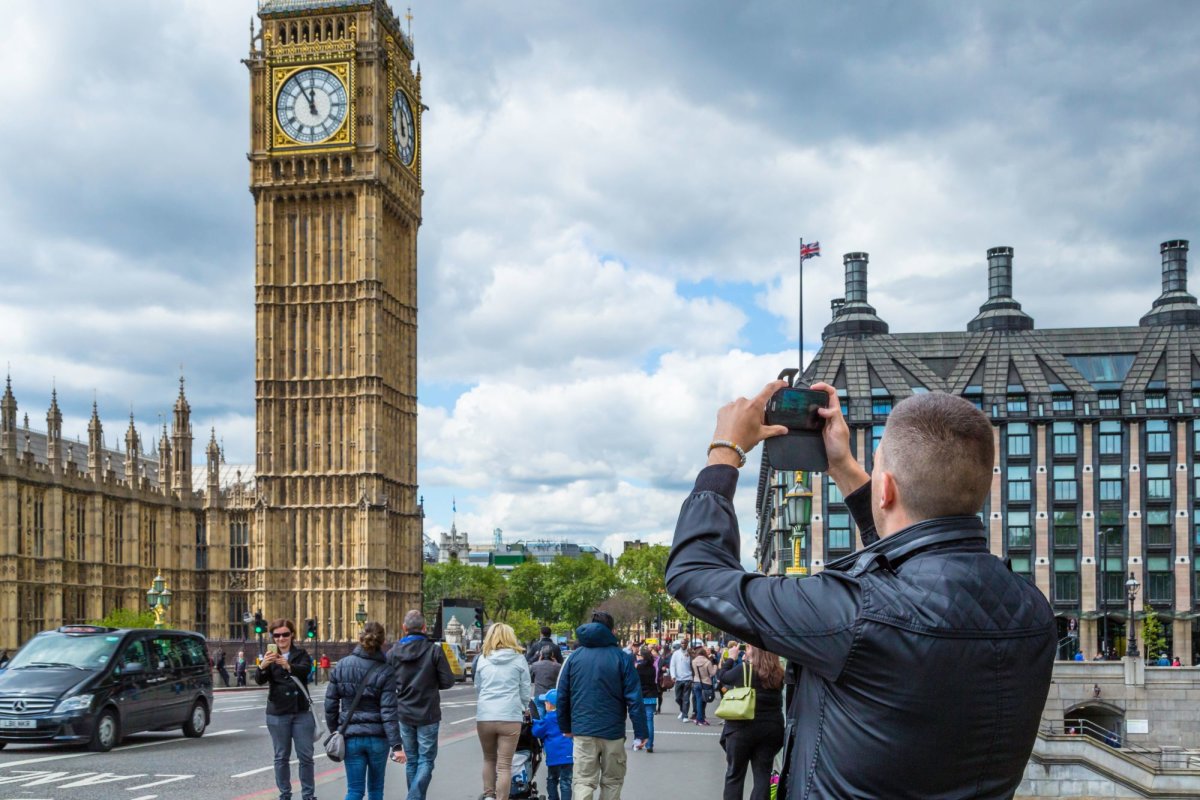

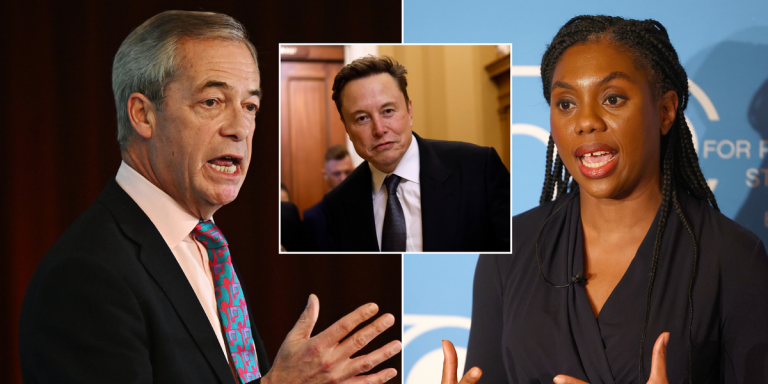
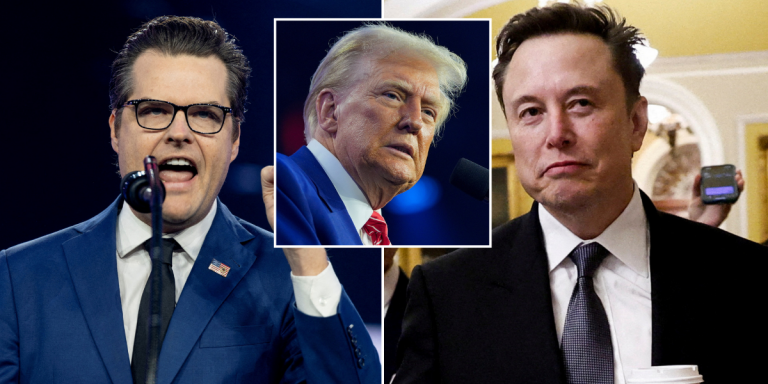
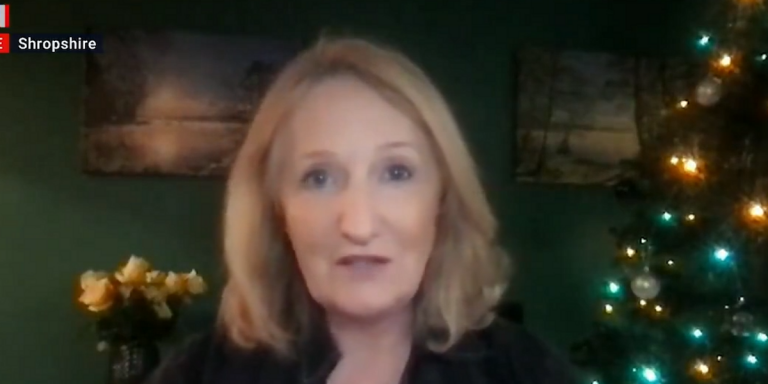
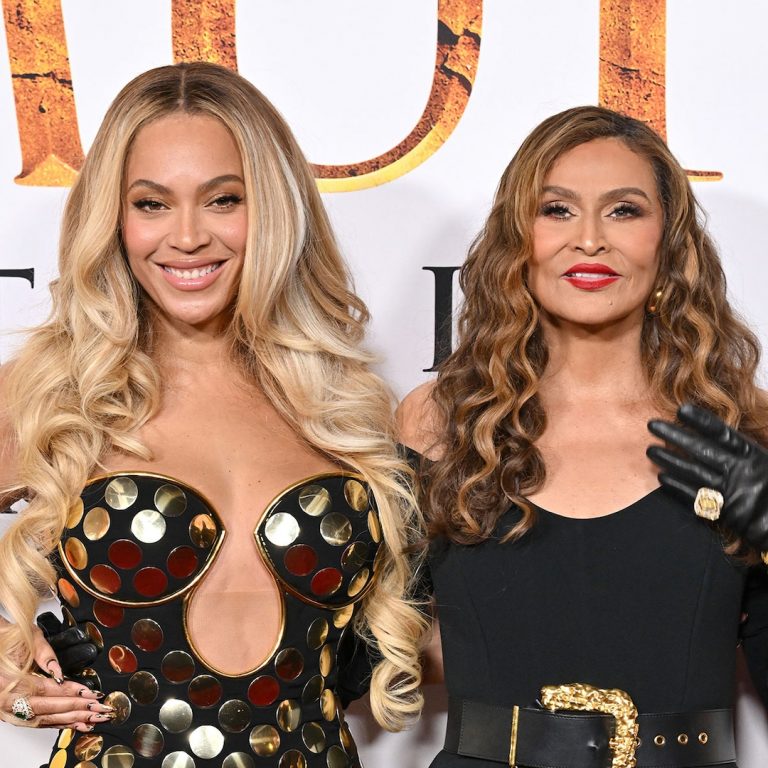





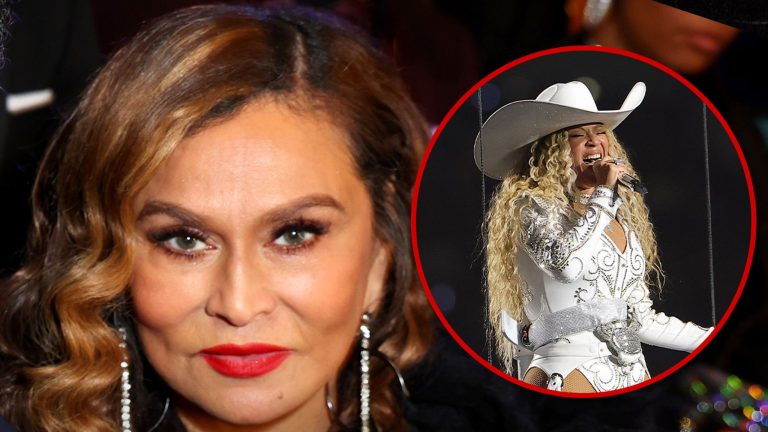

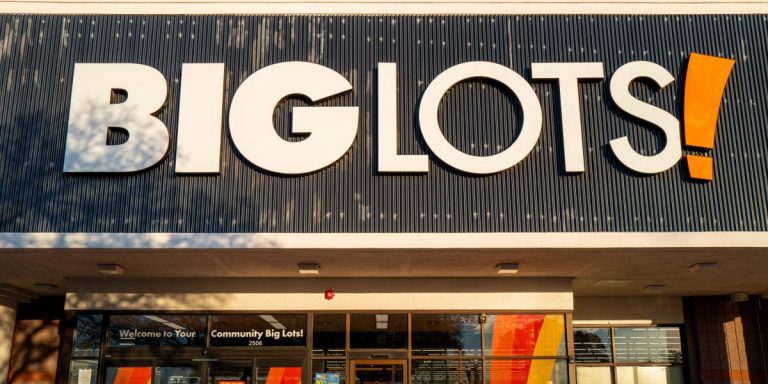
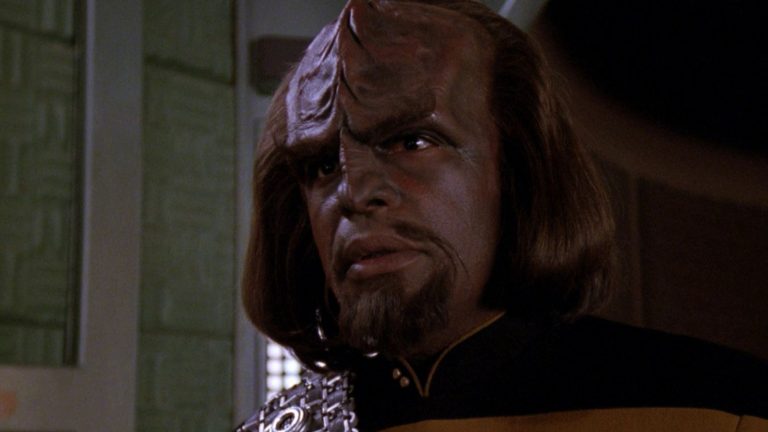
+ There are no comments
Add yours